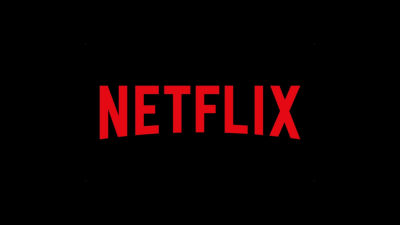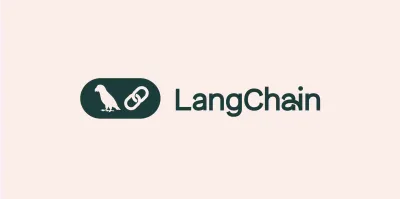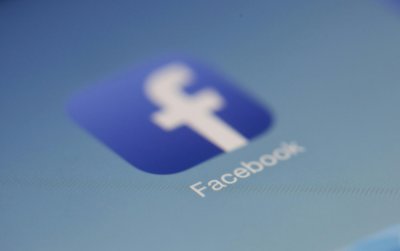Spotify Confirms Major Label AI Partnerships, Vows 'Responsible' Innovation for Music's Future
By: @devadigax

In a move that could redefine the landscape of music creation and distribution, Spotify has officially announced its groundbreaking partnerships with major record labels and independent aggregators to develop "responsible" AI music tools. The long-speculated collaborations are now a reality, with the streaming giant confirming agreements with industry behemoths Sony Music Group, Universal Music Group, and Warner Music Group, alongside key independent entities Merlin and Believe. This landmark announcement signals a concerted effort by the music industry's most influential players to proactively shape the integration of artificial intelligence into the creative process, rather than merely reacting to its disruptive potential.
The confirmation from Spotify puts an end to months of industry whispers and speculation regarding potential alliances between technology platforms and rights holders in the burgeoning field of generative AI. While the specifics of the tools and their deployment remain under wraps, the explicit emphasis on "responsible" AI underscores a collective awareness of the ethical, legal, and creative complexities that artificial intelligence presents to the arts. This commitment to responsibility suggests a proactive approach to address concerns ranging from artist compensation and intellectual property rights to the authenticity of music itself and potential job displacement within the industry.
At its core, the concept of "responsible AI" in music likely encompasses several critical pillars. Firstly, it would involve transparent data sourcing, ensuring that AI models are trained on ethically acquired and licensed music, thus avoiding the copyright infringement lawsuits that have plagued other generative AI companies. Secondly, fair compensation mechanisms for artists and rights holders whose work contributes to the training data or is influenced by AI-generated output will be paramount. This could involve new licensing models, royalty structures, or direct payments. Thirdly, it implies a focus on artist agency and creative control, positioning AI as an augmentation tool rather than a replacement for human artistry, allowing creators to leverage AI for inspiration, production, or refinement without relinquishing their unique voice.
From a practical standpoint, these partnerships could lead to a myriad of innovative tools. Imagine AI-powered mastering and mixing services that adapt to an artist's unique style, or generative AI that can produce bespoke instrumental tracks based on a simple lyrical prompt. Artists might gain access to tools that help them overcome creative blocks, experiment with new genres, or even personalize music for individual listeners in real-time. For labels, AI could streamline production workflows, enhance music discovery algorithms, and even identify emerging talent or market trends with unprecedented accuracy. The potential to create hyper-personalized listening experiences, where music adapts dynamically to a user's mood or activity, also looms large.
However, the path forward is not without significant challenges. The very notion of AI-generated music raises profound questions about artistic authenticity and the value of human creativity. Concerns about "deepfake" music, where AI could mimic an artist's voice or style without their consent, are legitimate and require robust safeguards. Furthermore, the economic impact on session musicians, producers, and even songwriters remains a contentious issue. While AI can augment, it also has the potential to automate, and the industry will need to navigate these waters carefully to ensure a sustainable ecosystem for all human contributors. The development of robust legal frameworks that clearly define ownership, usage rights, and liability for AI-generated content will be crucial.
Spotify's decision to partner directly with the major rights holders and independent representatives like Merlin and Believe is a strategic masterstroke. It signals a shift from a potentially adversarial relationship, where platforms might independently develop AI tools that could infringe on rights, to a collaborative one. By working together, these entities can establish industry standards, share best practices, and collectively advocate for policies that balance innovation with protection. This unified front could accelerate the ethical integration of AI, setting a precedent for how technology platforms and content creators can mutually benefit from advanced computational tools.
This announcement is more than just a new feature for Spotify; it represents a pivotal moment for the entire music industry. It signifies a collective acknowledgment that AI is not a fleeting trend but a transformative force that must be engaged with thoughtfully and collaboratively. The success of these partnerships will hinge on their ability to deliver tangible benefits to artists and listeners while upholding the ethical principles of fairness, transparency, and respect for human creativity. As the music industry steps into this AI-powered future, the world will be watching to see if "responsible AI" can truly harmonise innovation with the enduring value of human artistry.
The confirmation from Spotify puts an end to months of industry whispers and speculation regarding potential alliances between technology platforms and rights holders in the burgeoning field of generative AI. While the specifics of the tools and their deployment remain under wraps, the explicit emphasis on "responsible" AI underscores a collective awareness of the ethical, legal, and creative complexities that artificial intelligence presents to the arts. This commitment to responsibility suggests a proactive approach to address concerns ranging from artist compensation and intellectual property rights to the authenticity of music itself and potential job displacement within the industry.
At its core, the concept of "responsible AI" in music likely encompasses several critical pillars. Firstly, it would involve transparent data sourcing, ensuring that AI models are trained on ethically acquired and licensed music, thus avoiding the copyright infringement lawsuits that have plagued other generative AI companies. Secondly, fair compensation mechanisms for artists and rights holders whose work contributes to the training data or is influenced by AI-generated output will be paramount. This could involve new licensing models, royalty structures, or direct payments. Thirdly, it implies a focus on artist agency and creative control, positioning AI as an augmentation tool rather than a replacement for human artistry, allowing creators to leverage AI for inspiration, production, or refinement without relinquishing their unique voice.
From a practical standpoint, these partnerships could lead to a myriad of innovative tools. Imagine AI-powered mastering and mixing services that adapt to an artist's unique style, or generative AI that can produce bespoke instrumental tracks based on a simple lyrical prompt. Artists might gain access to tools that help them overcome creative blocks, experiment with new genres, or even personalize music for individual listeners in real-time. For labels, AI could streamline production workflows, enhance music discovery algorithms, and even identify emerging talent or market trends with unprecedented accuracy. The potential to create hyper-personalized listening experiences, where music adapts dynamically to a user's mood or activity, also looms large.
However, the path forward is not without significant challenges. The very notion of AI-generated music raises profound questions about artistic authenticity and the value of human creativity. Concerns about "deepfake" music, where AI could mimic an artist's voice or style without their consent, are legitimate and require robust safeguards. Furthermore, the economic impact on session musicians, producers, and even songwriters remains a contentious issue. While AI can augment, it also has the potential to automate, and the industry will need to navigate these waters carefully to ensure a sustainable ecosystem for all human contributors. The development of robust legal frameworks that clearly define ownership, usage rights, and liability for AI-generated content will be crucial.
Spotify's decision to partner directly with the major rights holders and independent representatives like Merlin and Believe is a strategic masterstroke. It signals a shift from a potentially adversarial relationship, where platforms might independently develop AI tools that could infringe on rights, to a collaborative one. By working together, these entities can establish industry standards, share best practices, and collectively advocate for policies that balance innovation with protection. This unified front could accelerate the ethical integration of AI, setting a precedent for how technology platforms and content creators can mutually benefit from advanced computational tools.
This announcement is more than just a new feature for Spotify; it represents a pivotal moment for the entire music industry. It signifies a collective acknowledgment that AI is not a fleeting trend but a transformative force that must be engaged with thoughtfully and collaboratively. The success of these partnerships will hinge on their ability to deliver tangible benefits to artists and listeners while upholding the ethical principles of fairness, transparency, and respect for human creativity. As the music industry steps into this AI-powered future, the world will be watching to see if "responsible AI" can truly harmonise innovation with the enduring value of human artistry.
Comments
Related News

OpenAI Unveils ChatGPT Atlas: Your Browser Just Became Your Smartest AI Assistant
In a move poised to fundamentally reshape how we interact with the internet, OpenAI has officially launched ChatGPT Atlas, a gr...
@devadigax | 22 Oct 2025
In a move poised to fundamentally reshape how we interact with the internet, OpenAI has officially launched ChatGPT Atlas, a gr...
@devadigax | 22 Oct 2025

Netflix Doubles Down on Generative AI, Challenging Hollywood's Divide Over Creative Futures
In a move that underscores a growing chasm within the entertainment industry, streaming giant Netflix is reportedly going "all ...
@devadigax | 21 Oct 2025
In a move that underscores a growing chasm within the entertainment industry, streaming giant Netflix is reportedly going "all ...
@devadigax | 21 Oct 2025

AI Agent Pioneer LangChain Achieves Unicorn Status with $1.25 Billion Valuation
LangChain, the innovative open-source framework at the forefront of building AI agents, has officially joined the exclusive clu...
@devadigax | 21 Oct 2025
LangChain, the innovative open-source framework at the forefront of building AI agents, has officially joined the exclusive clu...
@devadigax | 21 Oct 2025

Meta Boots ChatGPT From WhatsApp: A Strategic Play for AI Dominance and Walled Gardens
In a significant move that reshapes the landscape of AI chatbot accessibility, OpenAI has officially confirmed that its popular...
@devadigax | 21 Oct 2025
In a significant move that reshapes the landscape of AI chatbot accessibility, OpenAI has officially confirmed that its popular...
@devadigax | 21 Oct 2025

Meta's New AI Peeks Into Your Camera Roll: The 'Shareworthy' Feature Raises Privacy Eyebrows
Meta, the parent company of Facebook, has rolled out a new, somewhat controversial artificial intelligence feature to its users...
@devadigax | 18 Oct 2025
Meta, the parent company of Facebook, has rolled out a new, somewhat controversial artificial intelligence feature to its users...
@devadigax | 18 Oct 2025
 AI Tool Buzz
AI Tool Buzz